Apple held its annual gathering of software developers in San Jose, northern California, on Monday to introduce its updates in MacOS, Apple Watch, and IOS 11, as well as the launch of its new product, HomePod, which many see as a challenge to Amazon Alexa and Google Home.
Introduction of HomePod
Powered by Apple's Siri digital assistant, HomePod is a voice-controlled speaker that can make music suggestions with Apple Music and adjust home temperatures. It is expected to be priced at $349 and begin shipping to the United States, Australia, and Britain in December, announced the tech giant.
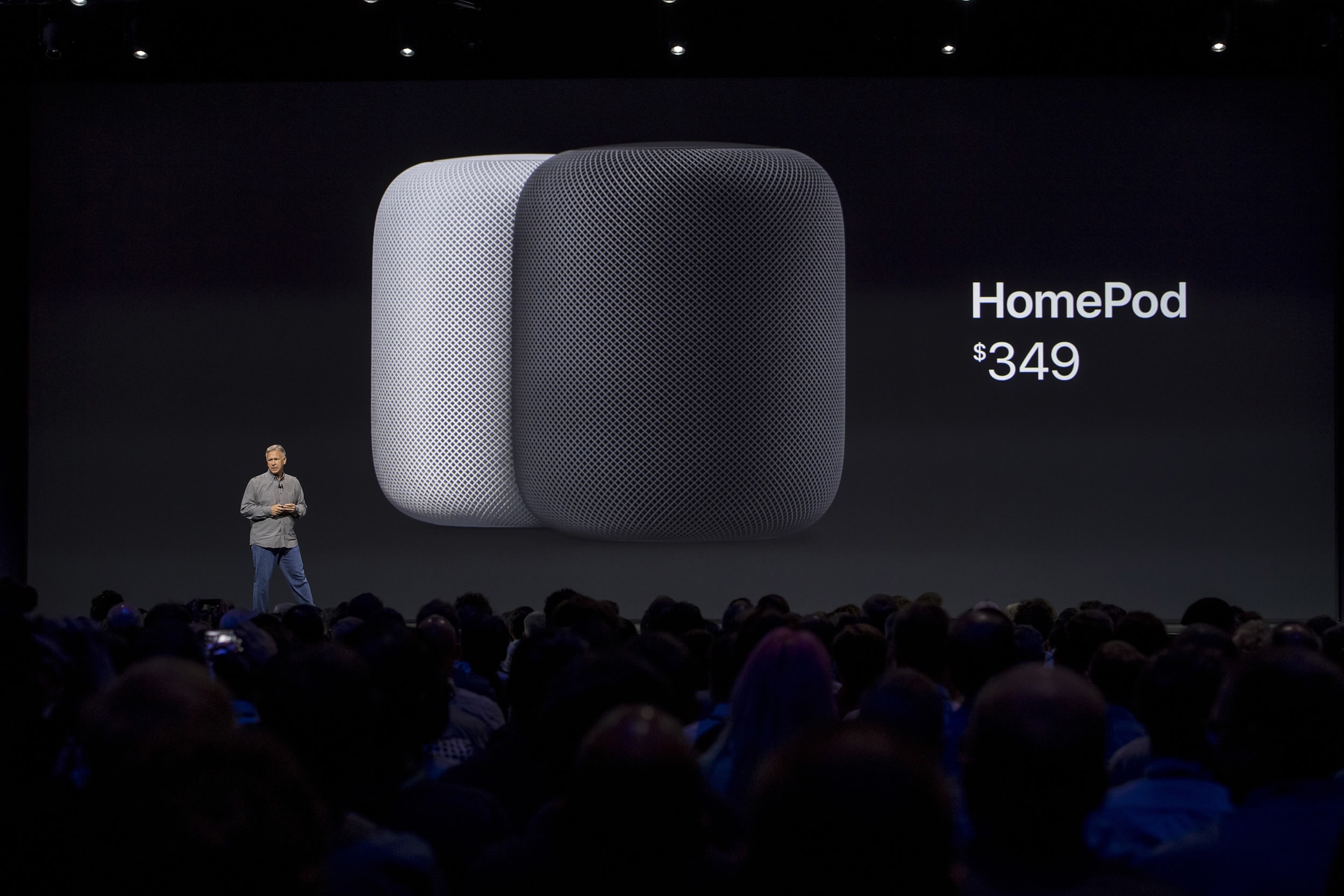
Phil Schiller, senior vice president of the worldwide marketing at Apple, introduces Apple's new product HomePod during the Worldwide Developers Conference (WWDC) in San Jose, California, US, June 5, 2017. /VCG Photo
This is Apple’s the first move into a completely new area since the Apple Watch in September 2014, as the world’s most valuable technology company looks to make up for a dip in iPhone sales and new ways to get customers to use more of its money-making apps and services.
In addition to the two main features mentioned above, it can also send text messages, check news and sports scores, and control compatible home gadgets like light bulbs and thermostats.
A new Siri interface on the Apple Watch will also blend users' calendar information with other useful details, like airline tickets they may have booked, the company said.
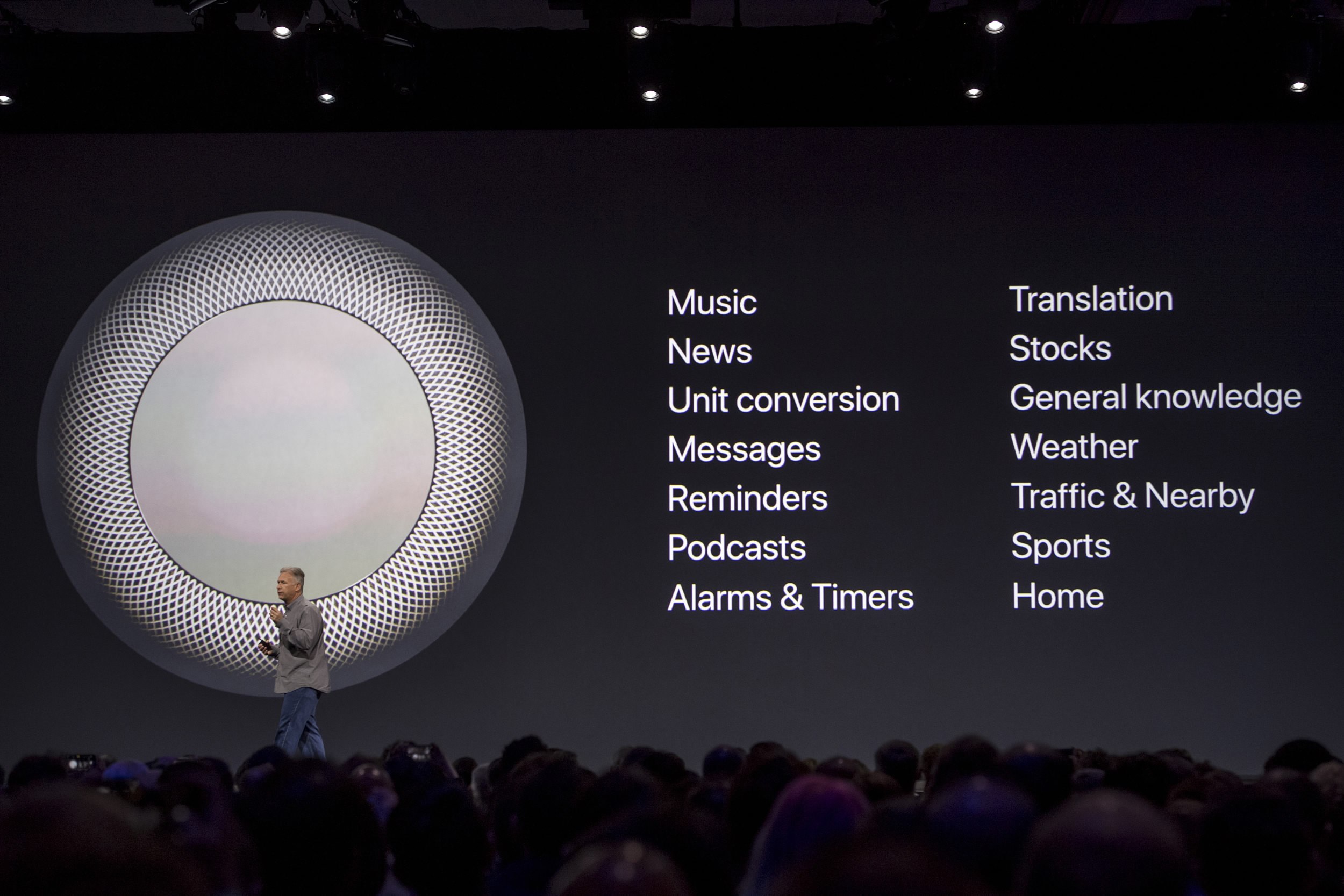
Introducing a range of HomePod's features. /VCG Photo
"It's so cool, we really believe it is going to take your home music experience to the next level," Apple chief executive Tim Cook said of the new device.
Competition HomePod faces ahead
As a music-playing device, it will also be competing with Sonos, whose WiFi-controlled speakers are used by many smartphone users for home entertainment.
Amazon Echo and Google Home have long been building momentum in the market for voice-controlled speakers capable of controlling smart appliances and fetching content from the Internet and more.
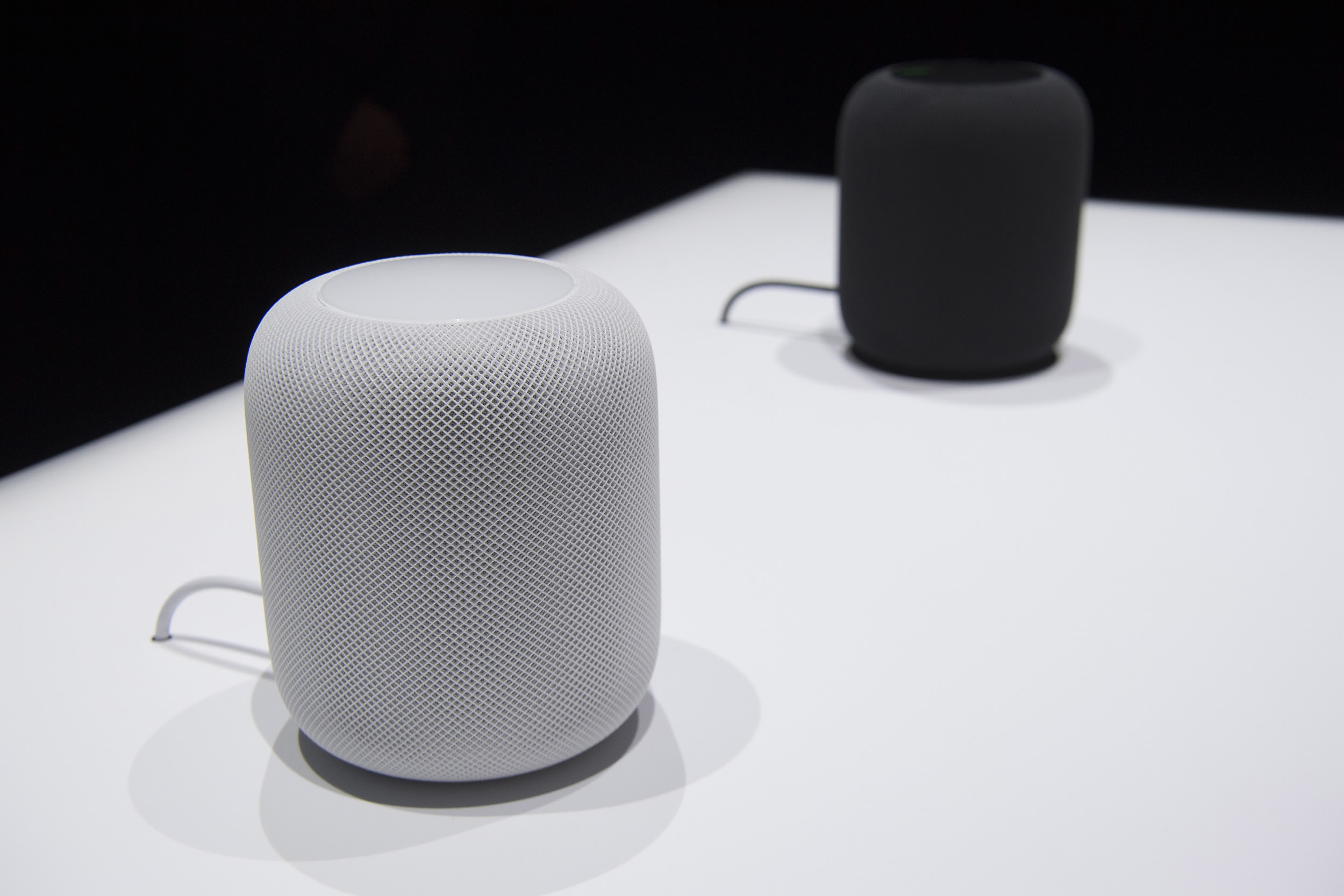
A close-up look at the new intelligent speaker. /VCG Photo
For that reason, some industry insiders note that Apple will be under more pressure to improve the computing smarts of its Siri software in the face of offerings from its rivals.
Amazon has dominated the category of connected speakers since 2014 when it introduced its first Echo, which responds to voice commands and allows users to order goods or rides and control connected appliances.
A survey released last month by research firm eMarketer found Echo speakers held 70.6 percent of the US market, compared with 23.8 percent for Google Home and 5.6 percent for others including Lenovo, LG, Harmon Kardon and Mattel.
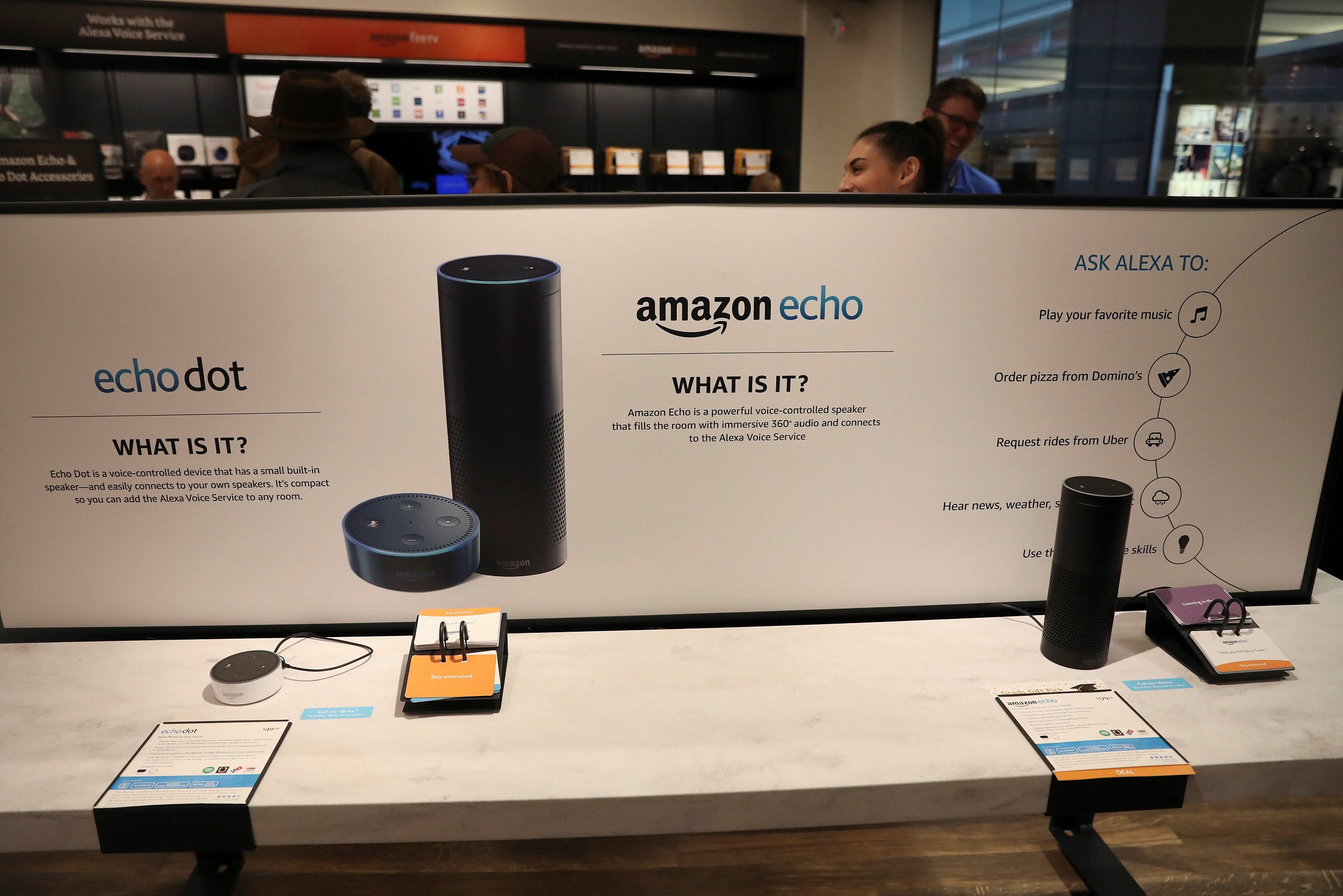
Amazon's Echo developed by its parent company Alexa. /VCG Photo
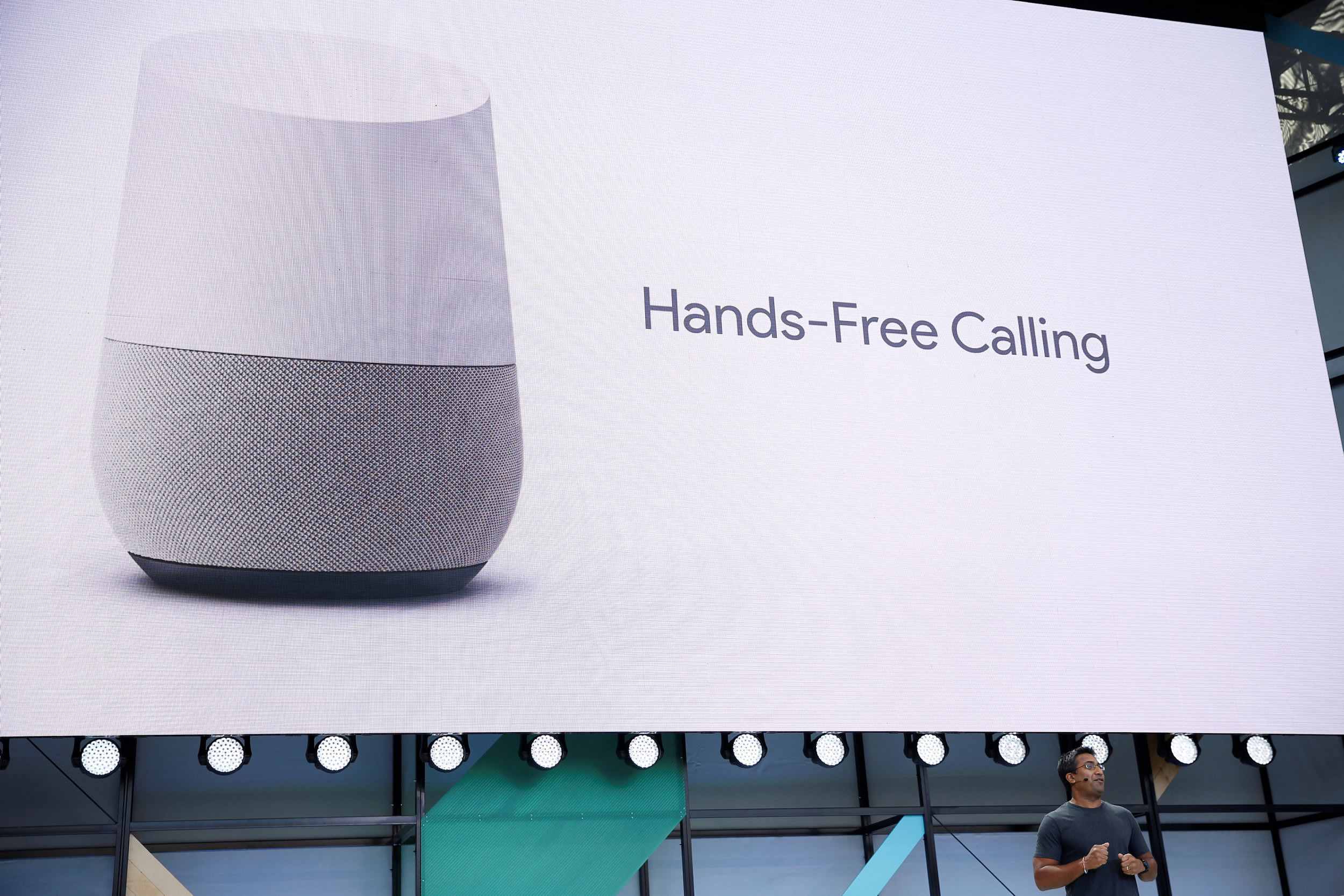
Rishi Chandra, vice president of the product management and general manager of home products, introduces Google Home during the annual Google I/O developers conference in San Jose, California, US, May 17, 2017. /VCG Photo
HomePod users may initially be constrained by Siri's lack of capabilities as compared to Alexa, which also boasts the ability to order millions of Amazon products as well as food from restaurants like Domino's.
Apple is expected to announce plans this week to make its Siri voice assistant work with a larger variety of apps, but initial changes were expected to add just a small number of capabilities.
Augmented reality
Apple also used its developer meeting -- its largest ever with some 5,000 people attending -- to offer hints about so-called augmented reality technology ARKit for iPhone and iPad.
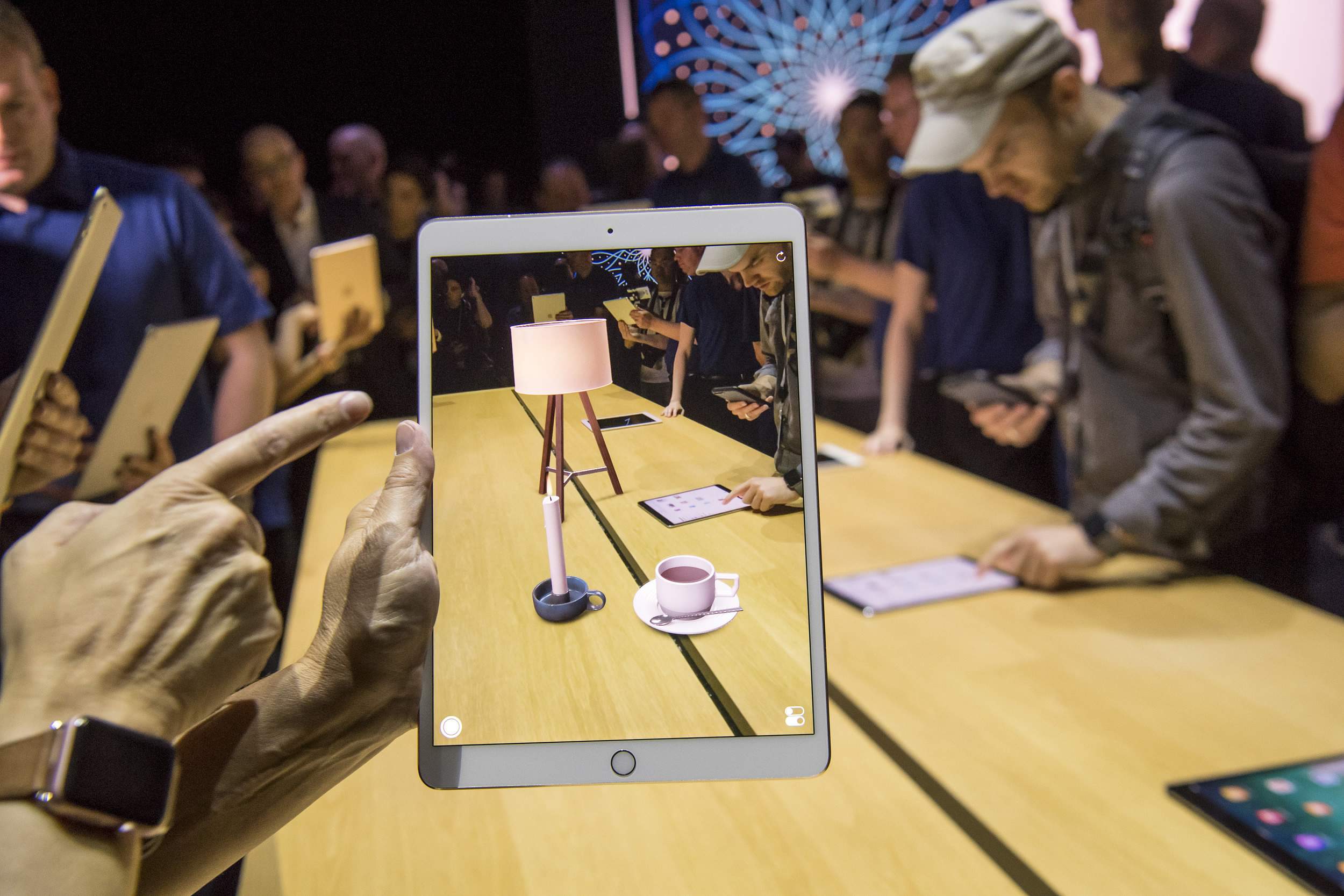
An attendee demonstrates the ARKit, an augmented reality tool, on Apple's new version of iPad -- iPad Pro, during WWDC 2017. /VCG Photo
The technology, a feature of the wildly successfully smartphone game Pokemon Go, overlays digital information on real-world images and is seen as an area in which the keenly awaited 10th-anniversary iPhone can stand out from competitors.
New indoor maps of areas like malls and airports indicated that Apple might be laying groundwork to display information over images of those places in the future.
What else is new?
Cook used the Apple keynote to show new iPad, iPod and Mac models, as well as upgrades to operating systems across various platforms.
Apple senior vice president of software engineering Craig Federighi said the next Mac operating system will be named "High Sierra" and a new product called iMac Pro will be released. The new Safari will be 80 percent faster than Google Chrome, and Apple claims it to be the world’s fastest desktop browser.
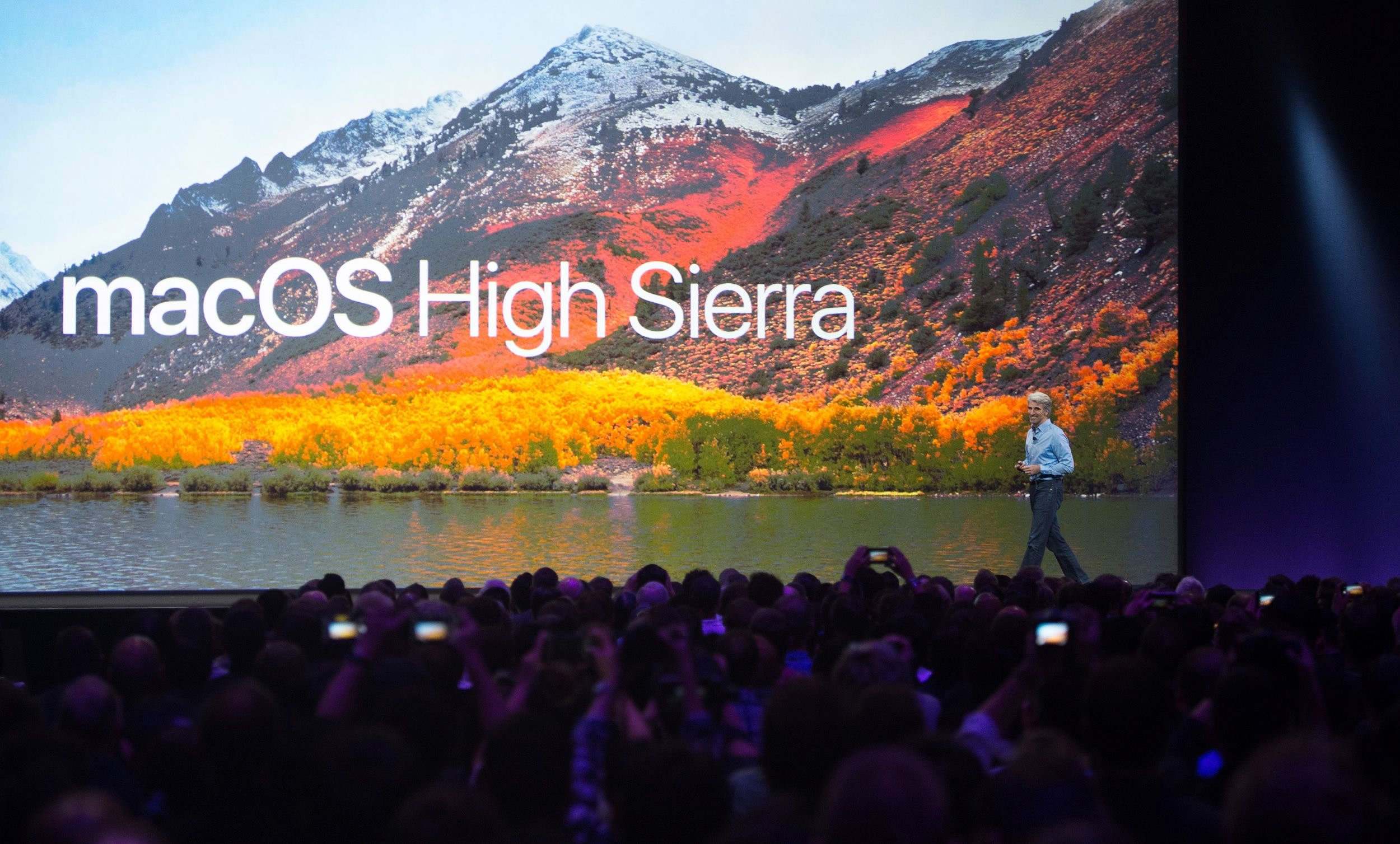
Apple's Senior Vice President of Software Engineering Craig Federighi introduces macOS High Sierra during WWDC 2017. /VCG Photo
A new version iOS 11 was also revealed, which incorporates features such as Apple Pay through iMessage, Siri’s support of more languages and the choice to hear what songs your friends are listening in Apple Music.
Also, iOS 11 is integrated with features exclusively designed for Chinese users, including QR code camera support, blocking short message frauds and using phone numbers as Apple ID.
In addition, Apple announced that Amazon's Prime Video is coming to its Apple TV service, besides the 50 partners Apple already has.
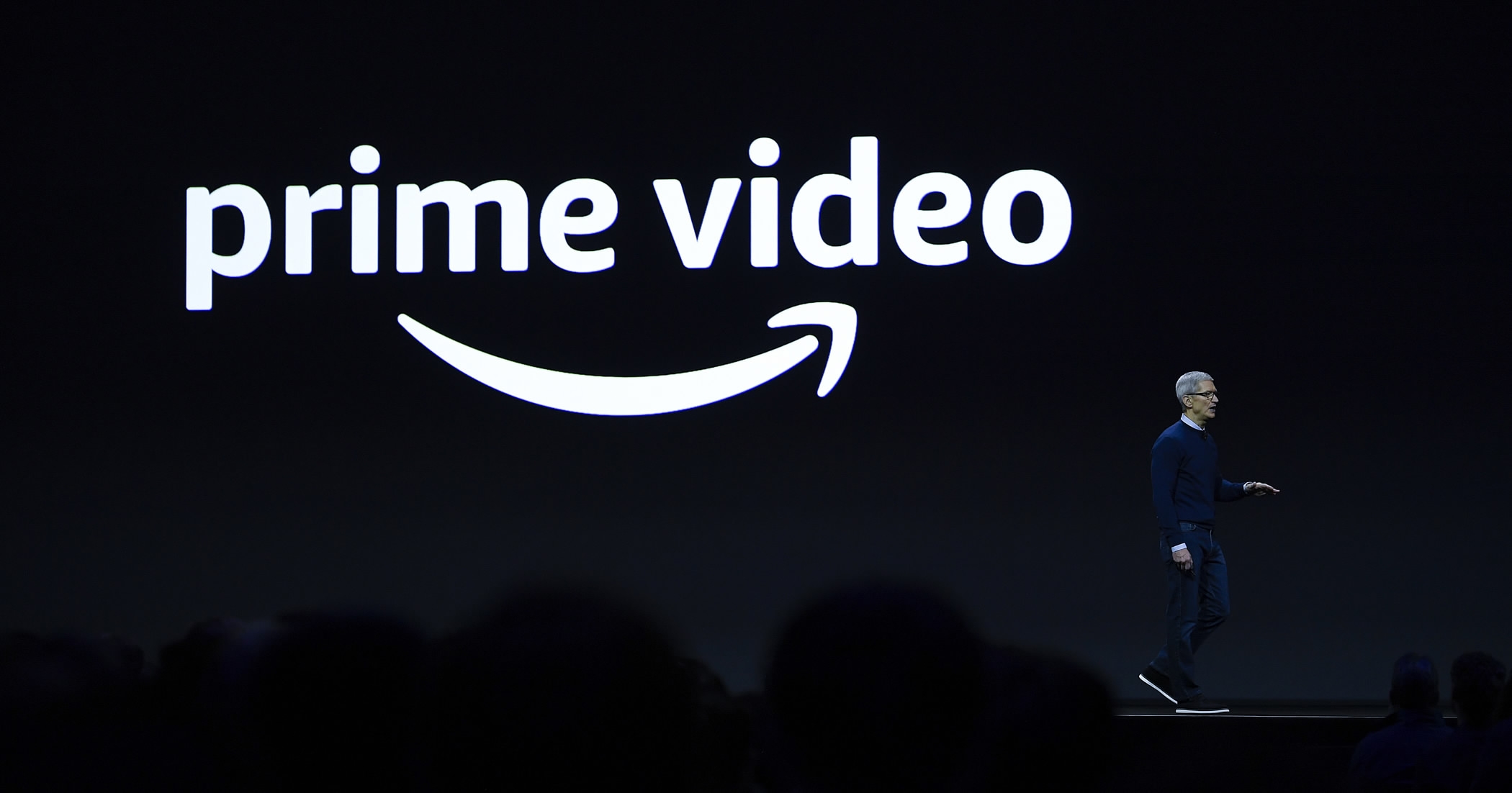
Prime Video will be integrated into Apple TV application, or app. /VCG Photo
Amazon Video, an Internet video on demand service that was developed and is operated by Amazon.com, offers television shows and films for rent or purchase and as part of Amazon's Prime subscription, with selected titles viewed exclusively to full Prime or Prime Video members.
(With inputs from Reuters, AFP and Xinhua)










